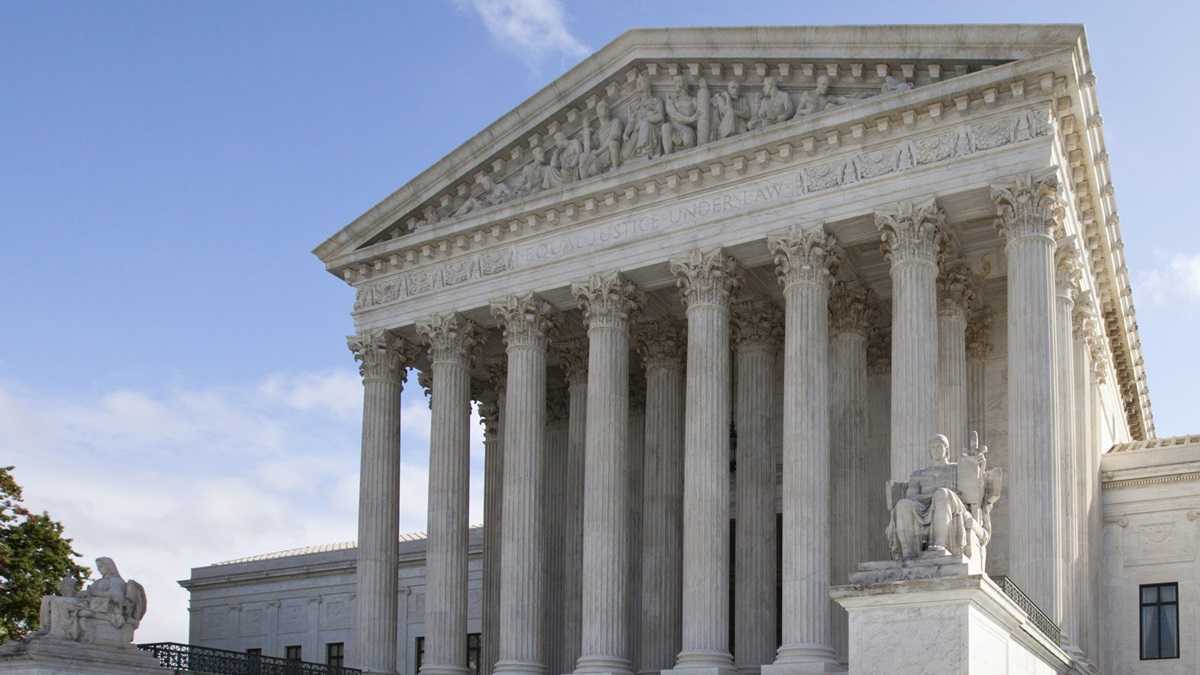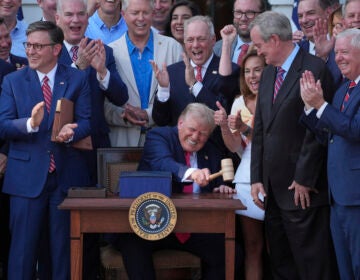When will apathetic Democrats ever learn that the Supreme Court is issue #1?

U.S. Supreme Court (J. Scott Applewhite/AP Photo)
My advice to Democrats — which I’ve offered for free since the dawn of this century — is that they pound this mantra into their thick skulls: “It’s the Supreme Court, stupid.”
But it’s probably too late for Democrats to acknowledge the obvious. One titanic reason why Trump-allied Republicans are now on the cusp of crafting a right-wing court for the next 40 years is because they always prioritize the court as a campaign issue and rallying cry. Democrats never do. Now they’ll suffer the consequences.
I’m frankly at pains to explain why most blue voters (especially blue-leaning voters who stay home) don’t seem to understand that the person in the White House has the power to shape the bench that has the final say on virtually every hot-button issue in American life. Or maybe most blue voters understand this perfectly well, but prefer to assess their candidates in terms of purity — thereby deciding, in the most recent case, that flawed Hillary Clinton was really no better than the GOP’s grifter.
My question for them — after this week’s string of pro-gerrymandering, pro-Muslim ban, and anti-labor rulings; and in the wake of Anthony Kennedy’s retirement announcement — is simply this: Happy now?
Trump’s voters were far more ginned up about the future of the court. Despite their various qualms about Trump, they were enthused about tilting the bench rightward and saw Trump as the way to make it happen. By contrast, Clinton’s voters (and potential Clinton voters who went AWOL or voted third party) yawned about the court’s tilt, and yawned about Mitch McConnell’s outrageous blockage of Obama nominee Merrick Garland. Clinton occasionally raised the issue. On May 31 she said: “The court can either make America a fairer place, or roll back the progress we’ve worked so hard to achieve” — but hey, what about her emails and her refusal to be as liberal as Bernie?
The national exit polls tell the tale: 21 percent of all voters cited the Supreme Court as the “most important” factor in their voting decision; among those folks, Trump swamped Clinton by 15 points (56-41). Among the 14 percent of voters who said the court was “a minor factor,” Clinton won by nine points (49-40). Among the 14 percent of voters who said the court was “not a factor at all,” Clinton stomped Trump by 18 points (55-37). And those stats don’t include the Democratic leaners who skipped the ballot or embraced Jill Stein. By the way, Stein’s combined vote total in pivotal Pennsylvania, Michigan, and Wisconsin was almost twice the size of Trump’s combined winning margin.
In a nutshell, Democrats want purity; Republicans want power. Social and religious conservatives, who have been fixated on the court for decades, made peace with Trump’s serial lying and abhorrent moral failures, because he was their best hope for a post-Scalia conservative bench.
Evangelical Christians, in particular, decided that it didn’t matter in the scheme of things that Trump was a detestable person. Mike Pence, one of their own, persuaded them to look at the big picture. They responded by voting for Trump in a landslide, 81 percent to 16 percent — the widest margin of any ’16 voting constituency.
And that’s how the Republican establishment fell in line. John Boehner, the ex-House speaker, said during the campaign that Trump’s behavior “disgusted” him. Nevertheless, “The only thing that really matters over the next four years or eight years is who is going to appoint the next Supreme Court nominees … The biggest impact any president can have on American society and on the American economy is who’s on that court.”
We also need to remember what happened in the 2014 midterms. Thanks to the usual anemic Democratic turnout — minorities and Millennials typically skip the midterms — Republicans seized control of the U.S. Senate. That’s what empowered McConnell to deny Garland a nomination hearing in 2016, and that’s what will empower him to confirm Kennedy’s right-wing successor this autumn, before voters have a chance to weigh in on the Senate’s ’19 composition. Everything is connected.
Conservatives play the long game; their counterparts on the left do not. I still have the notes from my conversation with William Kristol, the conservative activist-commentator, who told me: “The biggest impact the next president will have on domestic policy will be in the realm of (high) court appointments. There are so many big things facing the court in the next few years — school choice, affirmative action, church-state issues, abortion.”
We had that conversation in 1999.
And now conservatives — via their legal groups, which have long been nurturing a farm team of court players — are poised to give Trump a reliable nominee who’s likely to become the fifth vote to overturn Roe v. Wade and re-criminalize abortion. This will be Trump’s court now; this is one promise he has kept.
I suppose it’s theoretically possible that Senate Democrats could stop this from happening, perhaps by using parliamentary tactics to shut down Senate business. I wouldn’t bet the house on that. We all know how the game goes. Democrats are expected to respect norms and play fair; Republicans get a free pass to be ruthless. And it’s hard to play offense when you’re perpetually back on your heels.
So, for the umpteenth time: It’s the Supreme Court, stupid. And elections have consequences.
One of these decades, the Democratic party and its most apathetic voters might conceivably learn those lessons.
WHYY is your source for fact-based, in-depth journalism and information. As a nonprofit organization, we rely on financial support from readers like you. Please give today.




